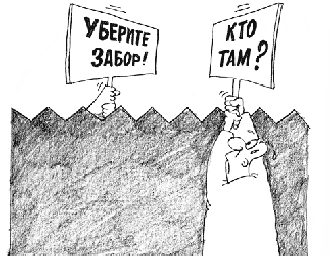Volha Smalianka: NGOs will all the same clarify their position to the state

The preparation of public hearings on the problem of improving the legislation about non-governmental organizations has already started.
As the Legal Transformation Centre “Lawtrend” has earlier reported, parliamentarians found public hearings about the legislation of NGOs unreasonable. Let us also recall that before that 25 organizations have directed an appeal to the Belarusan parliament and government that suggests holding parliamentary hearings concerning the issue of improving the legislation about the non-governmental organizations. The reason for such an appeal is the adoption of the draft law “On introducing amendments and additions to some Belarusan laws on the issues of the work of political parties and other public associations”.
Volha Smalianka, the director of the Legal Transformation Centre “Lawtrend”, comments upon the situation in the talk with the EuroBelarus Information Service.
- Having refused to hold public hearings, the state disputes their very thesis that they develop this law in order to improve the freedom of associations in Belarus, as it is non-governmental organizations that are well aware as to what legislative measures we should undertake to improve the situation in the sphere of legal regulation.
When notifying about the refuse to hold public hearings, parliamentarians are somewhat insincere. The reason they voice is that after the vote and the adoption of the law “On public associations” in first reading its concept is not subject to further semantic change.
First of all, the suggested topic for open parliamentary hearings is much broader than the discussion of the draft law “On improving conditions for creation and work of public associations and other non-governmental organizations”.
To put it bluntly, non-governmental organizations have once again suggested the state to discuss each other’s positions.
Once more such suggestion was found unreasonable and was declined.
Nevertheless, NGOs will all the same clarify their position to the state. Legal Transformation Centre and the Assembly of Pro-Democratic NGOs of Belarus have already initiated the preparation of public hearings on this problem.
The representatives of state bodies will also be invited to the hearings. Their participation or non-participation will serve as an indicator as to whether they are interested in improving the situation and fulfilling both international and domestic recommendations.
Volha Smalianka also noted that a number of NGOs have already voiced their intention to participate in public hearings on the issue of educational legislation.
-
03.01
-
07.10
-
22.09
-
17.08
-
12.08
-
30.09



























